2023 Mescher Scholars
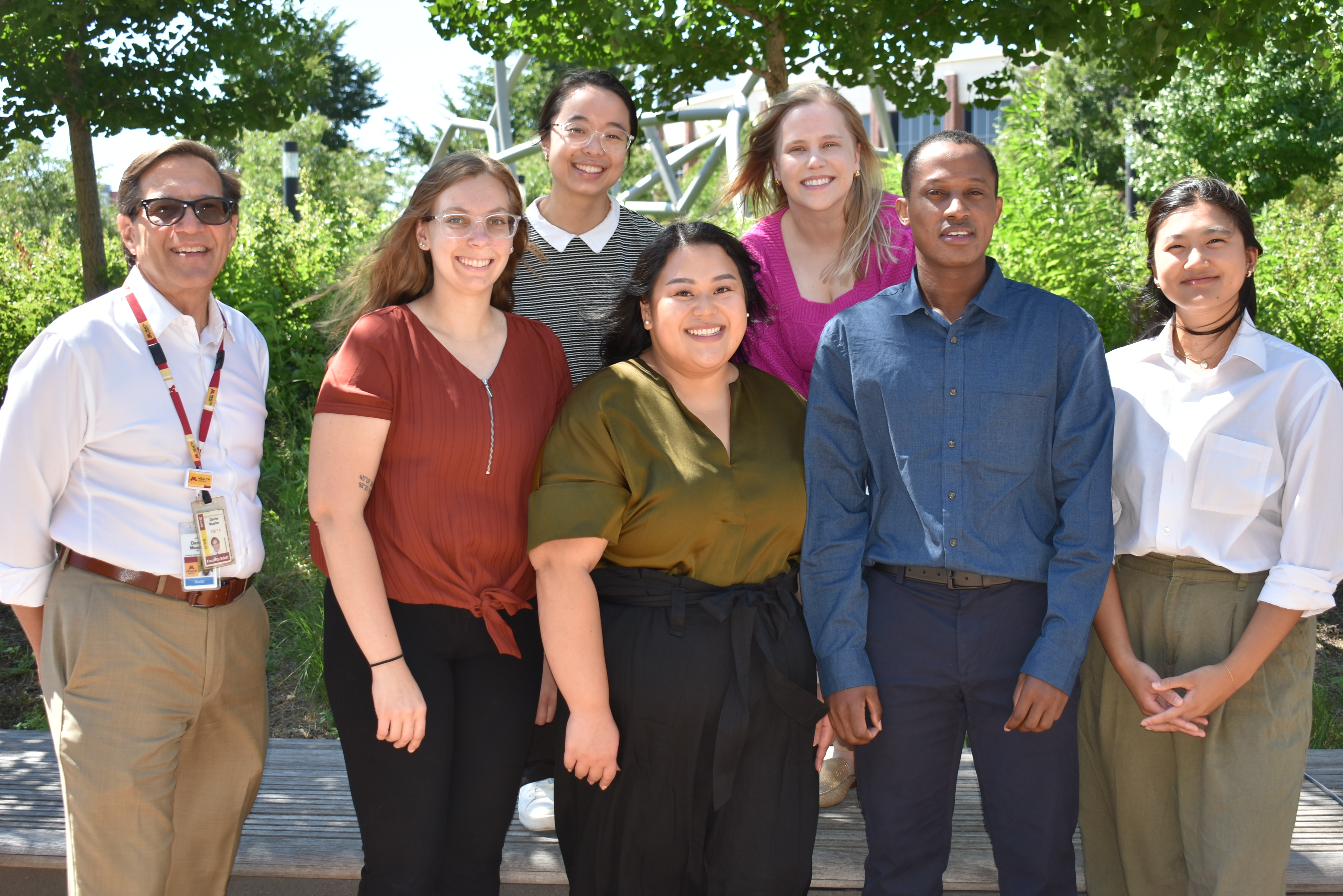
To view the student's poster, click on the picture below each name.
Claire Collins
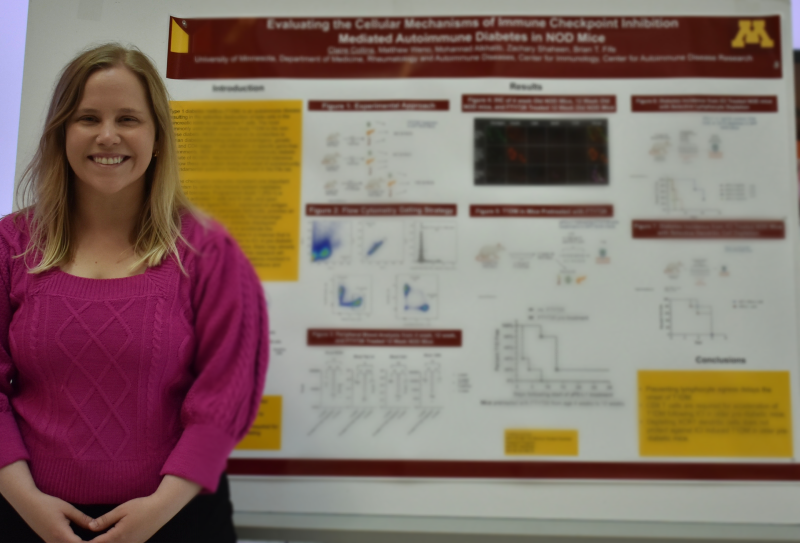
Claire Collins, George Mason University BS Neuroscience, MS Biology came to us with an extensive publication record related to her work in pulmonary medicine clinical research. Based on her interest in autoimmune disease, Claire began a summer project in Brian Fife’s laboratory investigating the capacity of immune checkpoint inhibition to trigger the development of Type I diabetes. Using chemical inhibitors of lymphocyte egress from lymph nodes, Claire determined that pre-treatment with the drug FTY720 could indeed protect against the development of anti-PD-1 induced diabetes in young NOD mice. In contrast, FTY720 had no effect once mice were exposed to anti-PD-1. Claire also established that CD8 T cells were most important to the development of diabetes.
"Evaluating the Cellular Mechanisms of Immune Checkpoint Inhibition Mediated Autoimmune Diabetes in NOD mice."
Zuag Paj Her
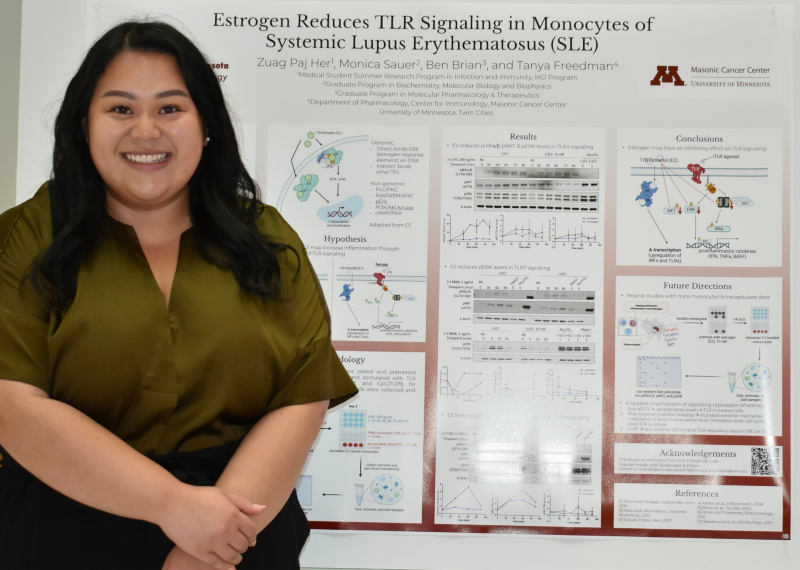
Zuag Paj Her, Winona State University BS Cellular Molecular Biology previously carried out neuroblastoma research. During her summer research experience, neuroblastoma research she worked with Tanya Freedman to determine how estrogen influences the function of toll-like receptors in macrophages. Their results have now indicated that estrogens reduce the levels of TLR-triggered phosphorylated IKKa/b and inhibit downstream NFkB activation and signaling.
"Estrogen reduces TLR signaling in monocytes"
Virginia Hsiao
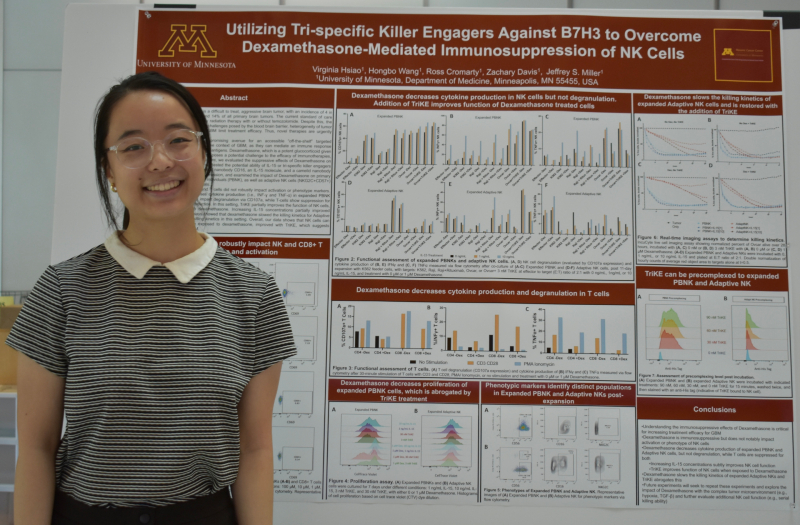
Virginia Hsiao, UC Berkley BA Molecular Cell Biology, entered the program with extensive research experience in transplantation biology and CRISPR, and took a position in the laboratory of Jeff Miller. During the summer, Virginia worked to determine the efficacy of Tri-specific Killer Engagers (TriKEs) to improve the function of NK cells in the setting of corticosteroid immunosuppression. Her work demonstrated that TriKEs could restore more normal NK proliferation
in the presence of corticosteroids.
Minda Liu
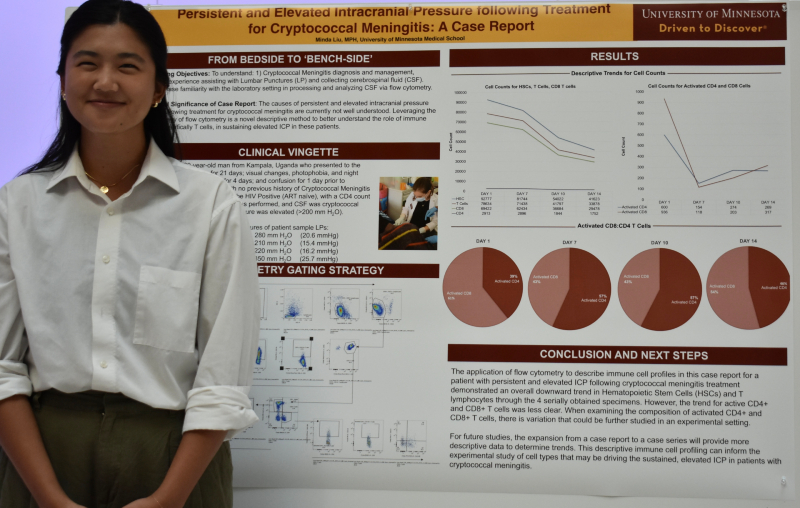
Minda Liu, Carlton College BA Biology has experience in both basic science (NFkBsignaling in cancer) and clinical research (neurooncology). In her research this summer, she traveled to Uganda to participate in an investigation of Cryptococcal Meningitis in collaboration with David Boulware’s research team. Her investigation of CSF leukocytes by flow cytometry demonstrated falling T cell numbers over the course of treatment (as expected) even though intracranial pressures remained elevated.
Issa Mutyaba
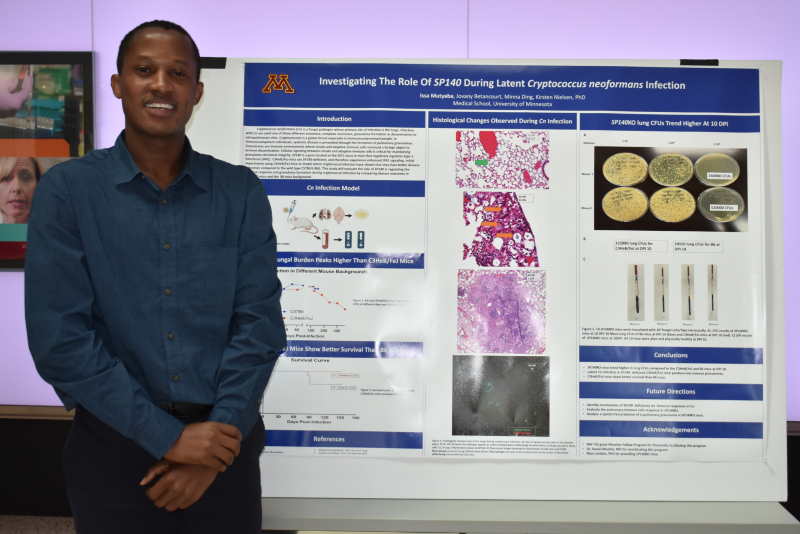
Issa Mutyaba, Metropolitan State University BS Nursing previously participated in a longitudinal study of HIV patients in Uganda. Therefore, he had extensive experience in clinical research, he had not previously had the opportunity to carry out basic science research. Under the direction of Kirsten Nielsen, Issa undertook and summer research project investigating the ability of the mouse SP140 gene allele to influence Cryptococcus neoformans infection. His results indicated that SP140-deficient mice have a higher fungal burden during infection. Nevertheless, the SP140-deficient mice produced fewer granulomas in the lung.
"Investigating the Role of SP140 During Latent Cryptococcus neoformans Infection"
Kendra Porath
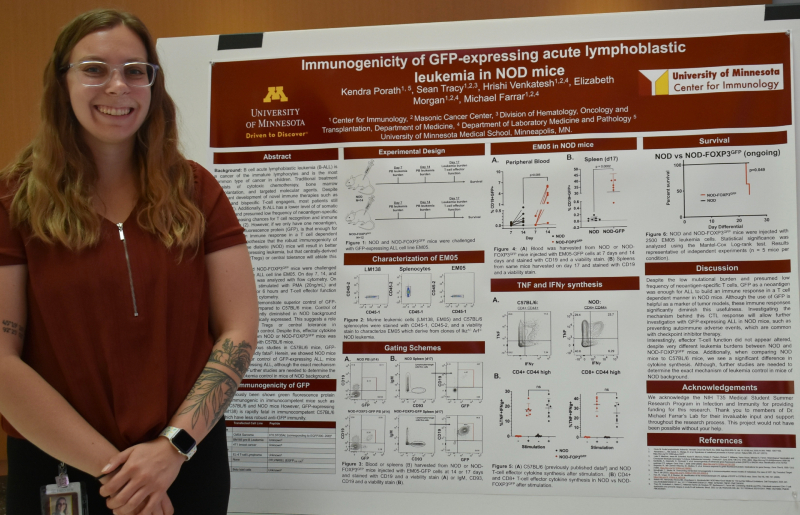
Kendra Porath, Bethany Lutheran College BA Psychology and Biology entered medical school after a 3-year period of post-baccalaureate research on the pharmacologic characteristics of novel chemotherapeutic agents. These included EGFR targeting antibody-drug conjugates. This summer, she entered the laboratory of Michael Farrar to study the immunogenicity of GFP-expressing acute
lymphoblastic leukemia cells. She found that compared to NOD wildtype mice, NOD-Foxp3 GFP knockin mice that express GFP in Treg cells were more susceptible to leukemia and death caused by CD19 + GFP-expressing ALL cells.
"ALL and T-cell response in NOD vs. NOD-FOXP3-GFP mice"
Shahraz Qamar
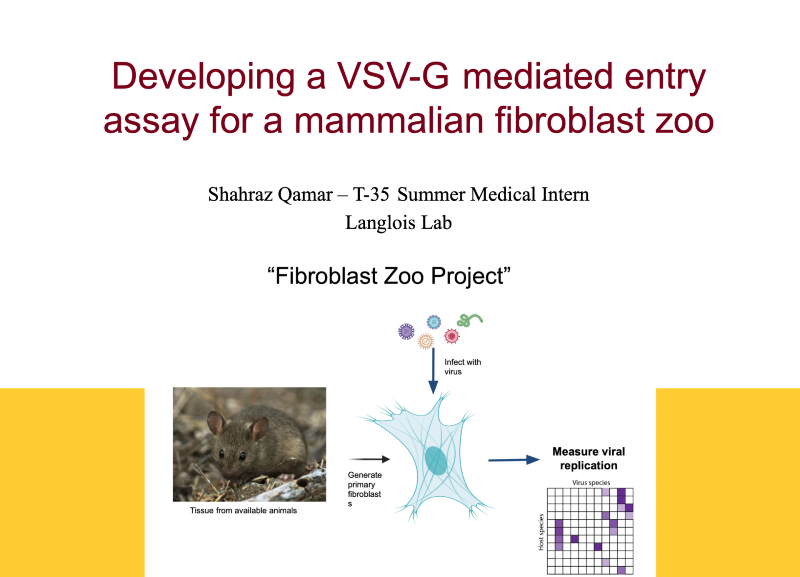
Shahraz Qamar, McGill University BS Anatomy and Cell Biology also carried out significant post-baccalaureate clinical research focusing on clinical interventions to improve the outcome of COVID-19 infection. Previous to that, he had performed basic science cytoskeletal research. This summer, Shahraz worked with Ryan Langlois to test VSV-G pseudotyped viruses for their ability to infect cells from multiple species using the virus’ ability to bind to Low-density Lipoprotein Receptors.
"Developing a VSV-G mediated entry assay for a mammalian fibroblast zoo"